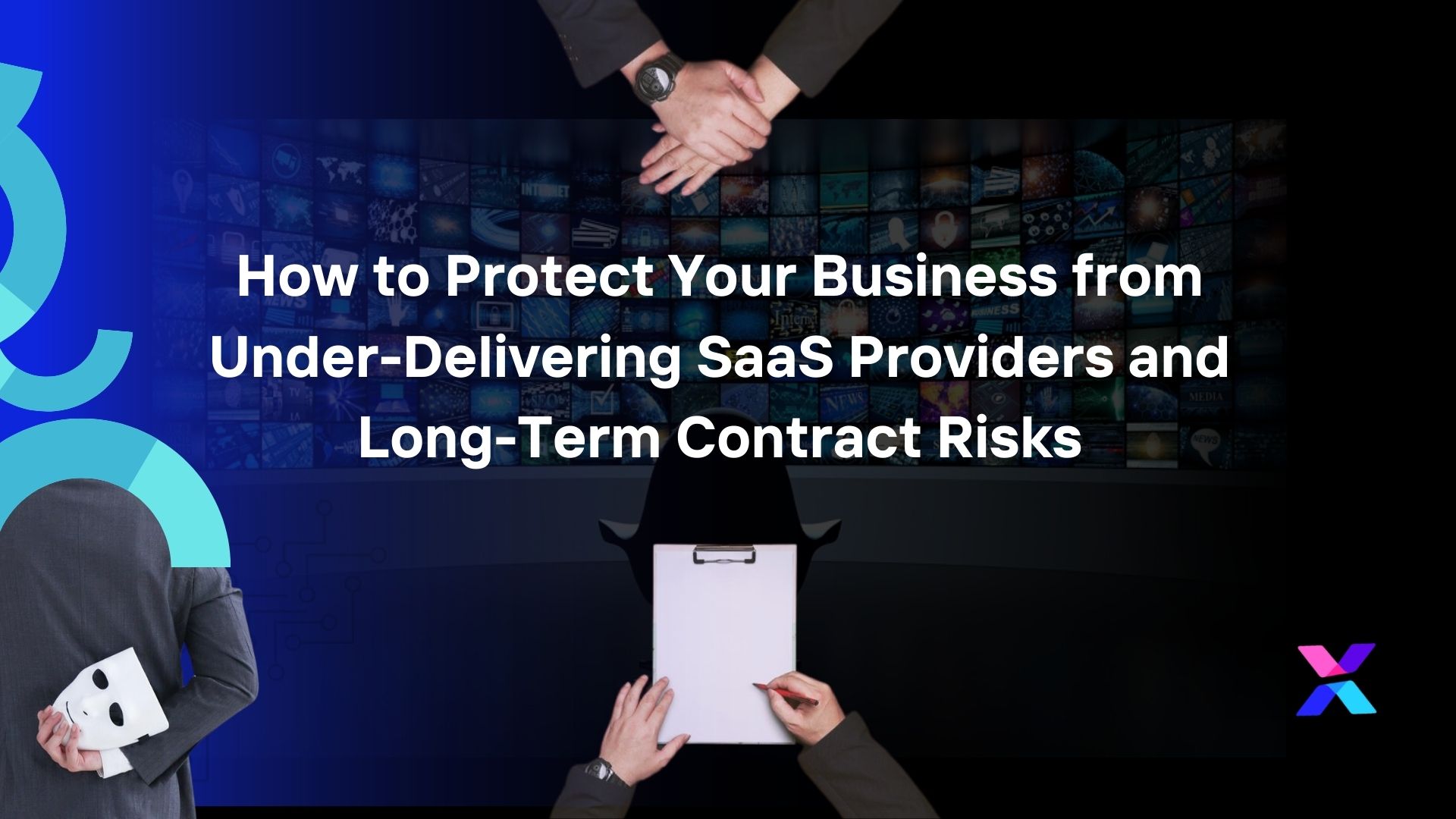In today’s digital age, businesses rely heavily on Software as a Service (SaaS) platforms to streamline operations, enhance productivity, and scale efficiently. However, not all SaaS providers are created equal. Choosing the wrong provider can lead to underperformance, financial losses, and long-term contract risks that are hard to escape. In this blog, we’ll explore how to protect your business from under-delivering SaaS providers and minimize the risks associated with long-term SaaS contracts.
1. Evaluate the SaaS Provider’s Performance Track Record
Before signing any contract, it’s essential to research the SaaS provider’s track record. A reliable provider will have:
- Case studies: Real-world examples of successful SaaS implementations.
- Client testimonials: Positive feedback from businesses that have used their SaaS solutions.
- Industry recognition: Awards or certifications that highlight their SaaS expertise.
Request a demonstration of their platform and ask for references. This due diligence can help ensure the provider is capable of delivering on their promises and reducing the risk of SaaS underperformance.
2. Understand the SaaS Contract Terms and Conditions
SaaS providers often entice businesses with long-term contracts that promise lower costs or added features. However, these contracts may come with hidden risks:
- Long lock-in periods: Contracts that require a commitment of 36 to 60 months can be risky if the provider doesn’t meet your expectations.
- Additional fees: Hidden costs for SaaS maintenance, upgrades, or extra features can inflate your budget.
- Termination penalties: Exiting a contract early might result in costly penalties, making it difficult to switch providers.
Pro Tip: Look for SaaS providers that offer flexible contracts or clear and fair exit clauses. For example, some providers offer 12-month contracts instead of long-term commitments, giving your business more flexibility and reducing the risk of getting stuck with an underperforming SaaS provider.
3. Assess SaaS Platform Customization and Scalability
A significant issue with underperforming SaaS providers is their lack of customization and scalability. Your business needs are likely to evolve, and your SaaS platform should be able to adapt accordingly. Ensure that the provider offers:
- Customizable SaaS solutions: The ability to tailor the software to fit your specific business processes and workflows.
- Scalability: As your business grows, the platform should scale seamlessly without requiring extensive upgrades or migration to a different platform.
A provider that prioritizes SaaS customization and scalability will help your business maintain operational efficiency as you expand.
4. Ensure Comprehensive SaaS Integration and Compatibility
A common issue with under-delivering SaaS providers is their inability to integrate smoothly with your existing systems. If the software does not support integration with your CRM, ERP, or other business-critical tools, it can lead to data silos and inefficiencies. To avoid this:
- Check for integration capabilities: Ensure the SaaS solution can integrate with your existing software stack.
- Compatibility with third-party tools: The SaaS platform should support a range of plugins and APIs.
- Open standards: Opt for providers that follow open standards, making integration easier.
A strong SaaS provider should facilitate seamless integration, reducing the risk of operational disruptions and enhancing your SaaS experience.
5. Look for Transparent SaaS Pricing and Monetization Models
SaaS providers typically offer various pricing models, such as subscription-based or usage-based pricing. However, under-delivering providers may hide fees or offer a confusing pricing structure. Ensure that your SaaS provider offers:
- Transparent SaaS pricing: A clear breakdown of costs, including licensing, maintenance, and support fees.
- Flexible monetization options: Whether through pay-as-you-go or tiered pricing, the provider should offer models that align with your business needs.
- Predictable costs: Avoid providers that frequently raise prices without justifying the added value.
Choosing a SaaS provider with transparent pricing helps you avoid unexpected expenses and keeps your budget in check, ultimately protecting your business from SaaS pricing risks.
6. Request Detailed SaaS Onboarding and Support Plans
An under-delivering SaaS provider often lacks a structured onboarding and support system, leading to delays, inefficiencies, and increased frustration for your team. Ensure that the provider offers:
- Comprehensive onboarding: Clear timelines and step-by-step guidance to get your team up and running quickly.
- 24/7 SaaS customer support: A dedicated support team that’s available when you need them most.
- Training resources: Documentation, tutorials, and live training sessions to help your team get the most out of the software.
Strong onboarding and support can make a significant difference in how smoothly your business transitions to the new SaaS platform.

7. Leverage SaaS Trials and Demos Before Committing
A reputable SaaS provider should be confident enough in their product to offer free trials, demos, or pilot projects. These options allow you to test the software in real-world scenarios without making a long-term commitment. When evaluating a SaaS provider:
- Test the user experience: Is the software intuitive and user-friendly for your team?
- Evaluate performance: Does the platform handle your business processes efficiently without technical issues?
- Examine feature availability: Are the critical features fully functional and customizable to your needs?
This hands-on testing will give you a better understanding of whether the provider can meet your business needs before signing a long-term SaaS contract.
How Gizmott is Different: No Long-Term Contracts, More Flexibility
Most SaaS providers lock clients into long-term contracts that typically span between 36 to 60 months. This rigid commitment often leaves businesses stuck with an underperforming platform and limited options for change. At Gizmott, we believe in empowering our clients with flexibility. That’s why we offer a standard 12-month contract, giving you the freedom to evaluate our service without the pressure of a long-term commitment.
With Gizmott, you can enjoy a highly customizable and scalable SaaS platform designed to grow with your business—without being tied down by unnecessary contract terms. We believe in earning your trust through performance, not through long-term contractual obligations.
This approach not only reduces your financial risk but also ensures that you have the freedom to pivot your business strategy as needed. Gizmott’s focus on flexibility and customer success sets us apart from other providers that rely on lengthy contracts to secure business.
Conclusion
Choosing the right SaaS provider is not just about features and pricing; it’s about protecting your business from SaaS underperformance and long-term contract risks. By conducting thorough research, understanding contract terms, and prioritizing flexibility, you can safeguard your business’s success. Opt for SaaS providers that offer scalable, customizable solutions and fair contract terms to avoid being locked into a subpar service.



